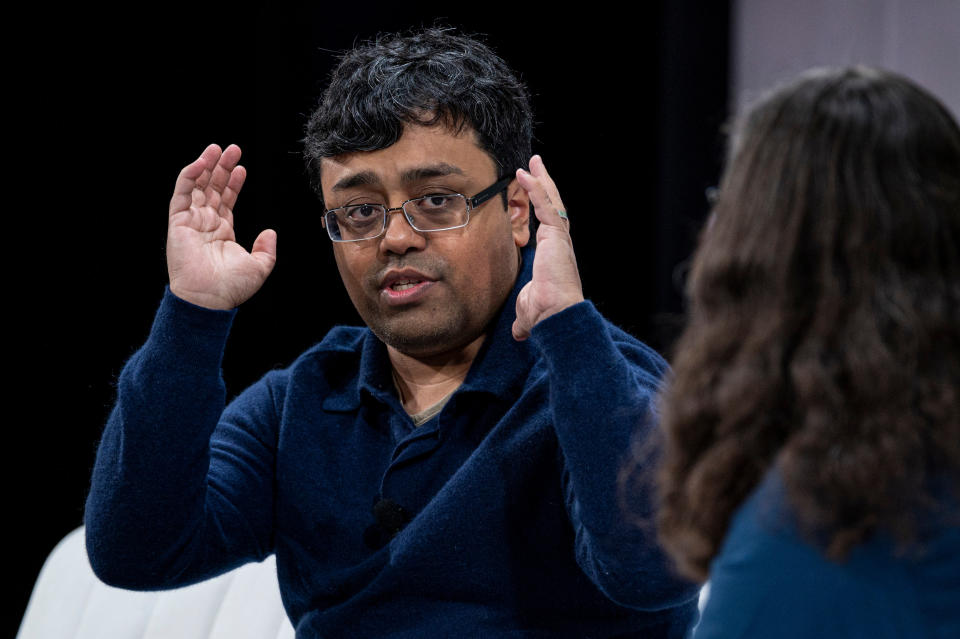Stability AI lands a lifeline from Sean Parker, Greycroft

Stability AI, the beleaguered generative AI startup behind Stable Diffusion, has raised new cash. But it won't reveal how much.
Greycroft, Coatue Management, Sound Ventures, Lightspeed Venture Partners, O’Shaughnessy Ventures and angel investors Prem Akkaraju, ex-Google CEO Eric Schmidt, Robert Nelsen and Napster founder and ex-Facebook exec Sean Parker have injected fresh capital into Stability, the company revealed Tuesday morning. Parker has joined Stability AI as executive board chairman, sitting alongside Greycroft managing partner Dana Settle, Coatue Management COO Colin Bryant and Akkaraju — who's been appointed Stability's CEO — on the company's board of directors.
“Stability AI has made a global impact by creating the leading generative image foundation models and fostering the largest ecosystem of generative AI media creators and developers," Parker said in a statement. "Innovation happens at the intersection of art and technology: the company’s world-class research and applied AI teams collaborate with a vibrant community of AI artists, model builders and developers who have ingeniously extended the capabilities of the company’s core models."
The announcement was preempted by The Information earlier this week, which revealed in a scoop that Stability AI was close to reaching a deal with VCs as it faces a cash crunch and unpaid cloud bills. Both The Information and Reuters reported that the fundraise could result in a lower valuation for the startup; Stability AI declined to comment.
Stability rose to prominence in 2022 after the release of Stable Diffusion, an image-generating AI model developed at Ludwig Maximilian University in collaboration with AI startup Runway. Stability delivered updates to the open source model and built services around it, eventually commercializing it and growing Stable Diffusion into one of the most widely used open image-generating models today.
Stability's ambitions grew in the subsequent years, and the startup ventured into a number of domains, including code, text, doodle, music, sound, 3D model and video generation and even biomedical research. But the company's co-founder and ex-CEO, Emad Mostaque, reportedly mismanaged Stability into financial ruin, leading staff to resign, a partnership with Canva to fall through and investors to grow concerned about Stability's prospects.
Stability had just $4 million in the bank last October, per reports — a far cry from the over $100 million in capital it raised in the proceeding years from investors including Intel — and was projected to make just $11 million in sales in 2023. Meanwhile, the company was on the hook for $99 million a year for cloud infrastructure rentals from AWS, Google Cloud and CoreWeave to train and run its models and $53 million in operating expenses and wages.
By December, Stability had pivoted to a subscription model for commercial use of its technology with prices starting at $20 per month. The company also considered reselling its compute resources as a managed service, according to reporting — and, at the urging of Lightspeed, selling itself.
Mostaque left in March following pressure from investors.
Stability's new investors, including Schmidt, have committed $80 million to effectively take over Stability; struck a deal with the startup's suppliers to forgive some $100 million in debt; and negotiated for Stability to be released from $300 million in future obligations largely meant to go to cloud infrastructure providers, according to The Wall Street Journal.
It's unclear where Stability goes from here. Key talent including several researchers behind the development of Stable Diffusion, as well as Ed Newton-Rex, who was heading up Stability's generative AI audio efforts, have left. And Stability faces multiple copyright infringement suits brought by stock image vendor Getty Images and other artists, who allege that their works were used without permission to train the original Stable Diffusion.
Akkaraju's background in visual FX may telegraph Stability's customer acquisition strategy going forward; Akkaraju was previously CEO of Weta Digital, the FX company behind the digital effects in films like "Avatar" and "The Lord of the Rings" trilogy. Parker says that Stability will focus on growing its managed image, video and audio pipelines and workflows, building custom enterprise models and content production tools and delivering APIs to power consumer apps for art, graphic design, social media and gaming.
Wherever Stability's future takes it, Parker pledges that the company will remain "committed to open-source principles."
"Our investment in Stability AI enables the continued development of open-source, open-access and open-weight models for the benefit of the entire community," he said. "The market opportunity in generative media — spanning images, video, 3D, voice and music — is just getting started … This investment will enable the creation of even more powerful models and allow the community to continue pushing the boundaries of human creativity."

 Yahoo Finance
Yahoo Finance 